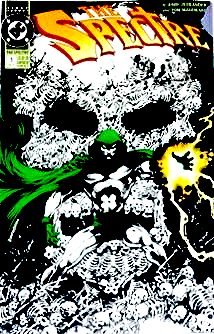Rehabilitation
What is the true mark of success for a crime fighter? Is it solving crimes, or is it preventing crime from happening in the first place? Or is it something more?
For some years now, at least since The Dark Knight Returns if not earlier, a persistent fan criticism of Batman is that he just catches criminals, criminals that, thanks to the serial nature of comic books, will merely escape and commit more crimes. This critique seems even stronger as the Joker moved from being a colorfully clad bank robber back to his original conception of serial murderer. In light of those circumstances, says the criticism, Batman should just pull a Punisher and shoot the bastards in the head. It would save lives and a whole lot of time.
But what that criticism misses is that the criminals Batman hunts are, to him, human beings. Human beings with complex inner lives, capable of learning the error of their ways, capable of change and actually improving society. We, the readers, know that they are characters, villains who will play the villain roles forever, but Batman has hope.
And sometimes that hope is even rewarded. Catwoman. The Penguin. The Riddler. Three of Batman's most iconic foes have all, over the past fifteen years, basically abandoned a life of crime. Now, only Catwoman has taken a truly altruistic calling of protecting the East End of Gotham, but nightclub owner and private detective are not bad ways to make a living.
Think about the crimes Edward Nigma himself has solved. Think about the men and women employed, legally, at the Iceberg Lounge. Think about the lives Selina Kyle has saved in her role as midnight vigilante. (or for that matter, the life she gave birth to).
None of that would have been possible if Batman had just offed them the first chance he got. A great story which hits this idea two ways sideways is the latest issue of Detective Comics. Not only does the main plot feature a Harley Quinn who sincerely wants to reform (or at least seems to), a key flashback is about how, while capable of killing, Batman's rogues are also capable of kindness, fear, sadness, and longing. And occasionally, acts of bravery.
A great story which hits this idea two ways sideways is the latest issue of Detective Comics. Not only does the main plot feature a Harley Quinn who sincerely wants to reform (or at least seems to), a key flashback is about how, while capable of killing, Batman's rogues are also capable of kindness, fear, sadness, and longing. And occasionally, acts of bravery.
Just as Batman himself has a lot of darkness in him, despite remaining a good guy, his enemies have some light hidden inside them. And given the choice between snuffing out that light in order eradicate the darkness, and letting that light remain in the hopes that it will someday shine through, Batman always chooses the later. Always.
Because Batman can solve crimes, or he can prevent crimes, OR, as a true mark of success as a crime fighter, he can help even his enemies become better people and actually improve the state of the world.
No point in throwing out the Harvey with the Two-Face.



